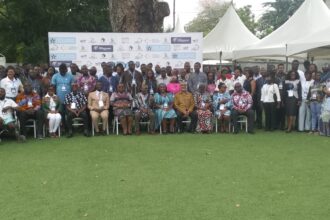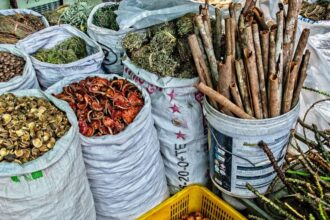My first cousin, James Atarah has died. I am informed he was buried yesterday. James has joined numerous victims of the silent epidemic that is killing young, mainly men, in the northern and upper regions of Ghana – akpeteshie, a toxic locally distilled spirit from sugarcane or palm wine.
Akpeteshie is cheaper than beer, it gives instant kick and it is deadly because a few irregular shots quickly leads you into the quicksand of permanent addiction from where there is no retreat until certain death. It kills far more young people than HIV/Aids, yet no political leader has suggested a public intervention – except once upon a time in the 1970s.
As a little schoolboy in 1972 I remember when the military regime that brought Col. Acheampong to power, the then Upper Regional Commissioner, Lt. Col. George Minyila decreed that the toxic stuff be banned from the whole of the upper region. The ban remained in force until the 1980s. Being a local boy from the area, Col. Minyila could not have failed to notice the damage that Akpeteshie was gradually inflicting on his compatriots, especially men. Yet the drink was not even half as widespread as it is today. Now it is also accessible to a population that has grown bigger than in the 1970s.
The toxic spirit is becoming the preferred drink in funerals and all social gatherings. Meanwhile, alcohol-related deaths are by far higher than HIV/Aids in the two northern regions, perhaps surpassed only by deaths from motorcycle accidents. Actually, the comparison with motorcycle deaths is misleading because alcohol grinds down the victim slowly and takes him off the labour force for several years before he finally goes. Yet it has not even so much as made a flick on the radar screen of policy makers.
We can longer sit on our hands and hide behind the argument of “personal choice” when a society is losing the most capable portion of its labour force. The ban placed by Col. Minyila was lifted in the 1980s on the basis that it was not backed by any legislation. But granted that it may have been an illegal social policy, was it not worthwhile preserving by a simple passing of legislation? Today, the few sane people left in my village are waxing nostalgic about those days when Col. Minyila stepped in to rescue families breaking up and saving young people’s lives. How is it that military regimes have sometimes exhibited more far-sighted vision than democracies? An illegal act was lifted off the backs of people, presenting them with a democratic right to die in large numbers. The producers are meanwhile given total immunity from the havoc they are causing in communities around the country. Their business is legal.
The public health system in Ghana has largely collapsed, if ever there was one, and alcohol-related deaths alongside cardiovascular diseases have become big killers. But political leaders have their eyes focused on more “important” issues – push their hands deeper into the public tills before the next one comes to empty it.
By: Linus Atarah














